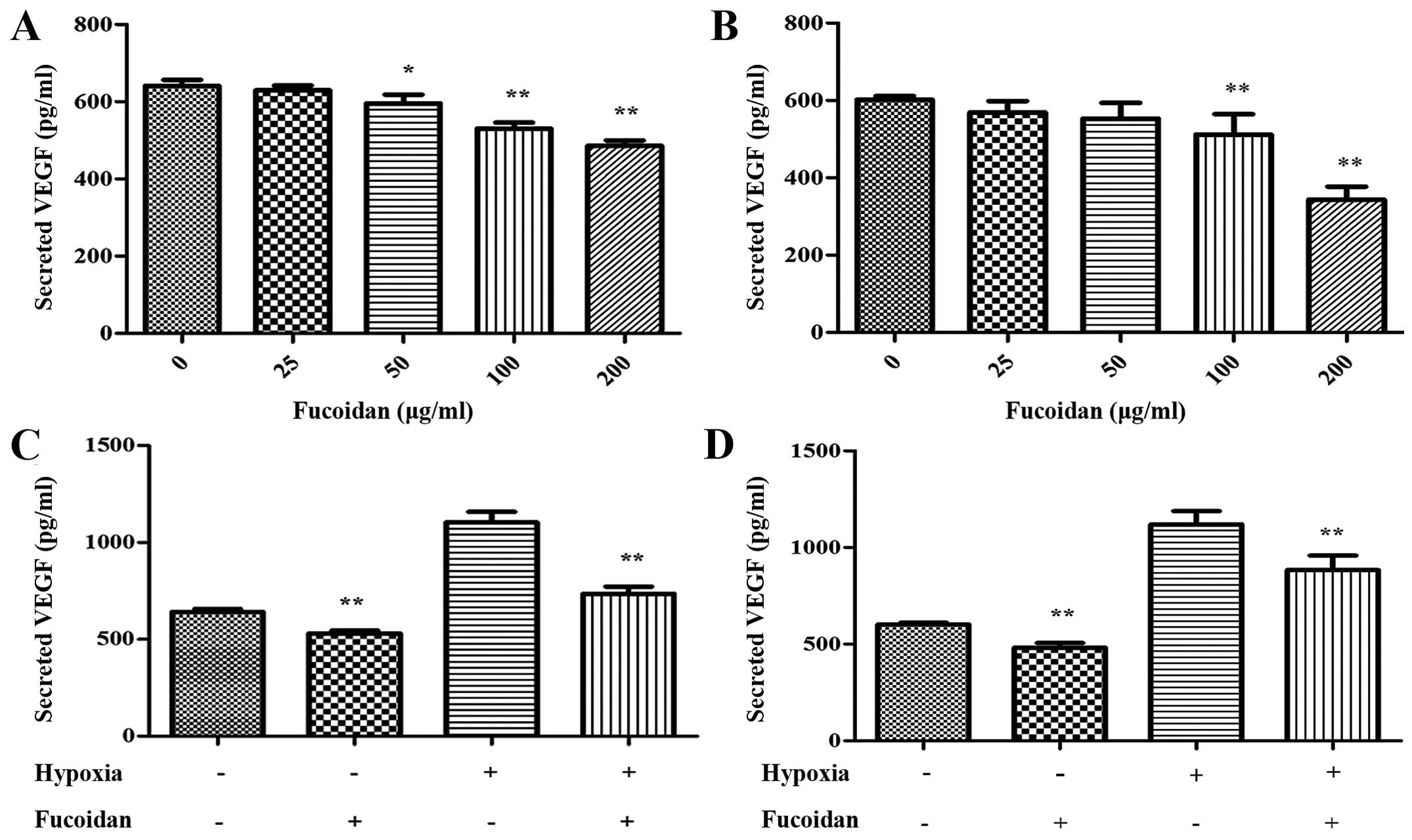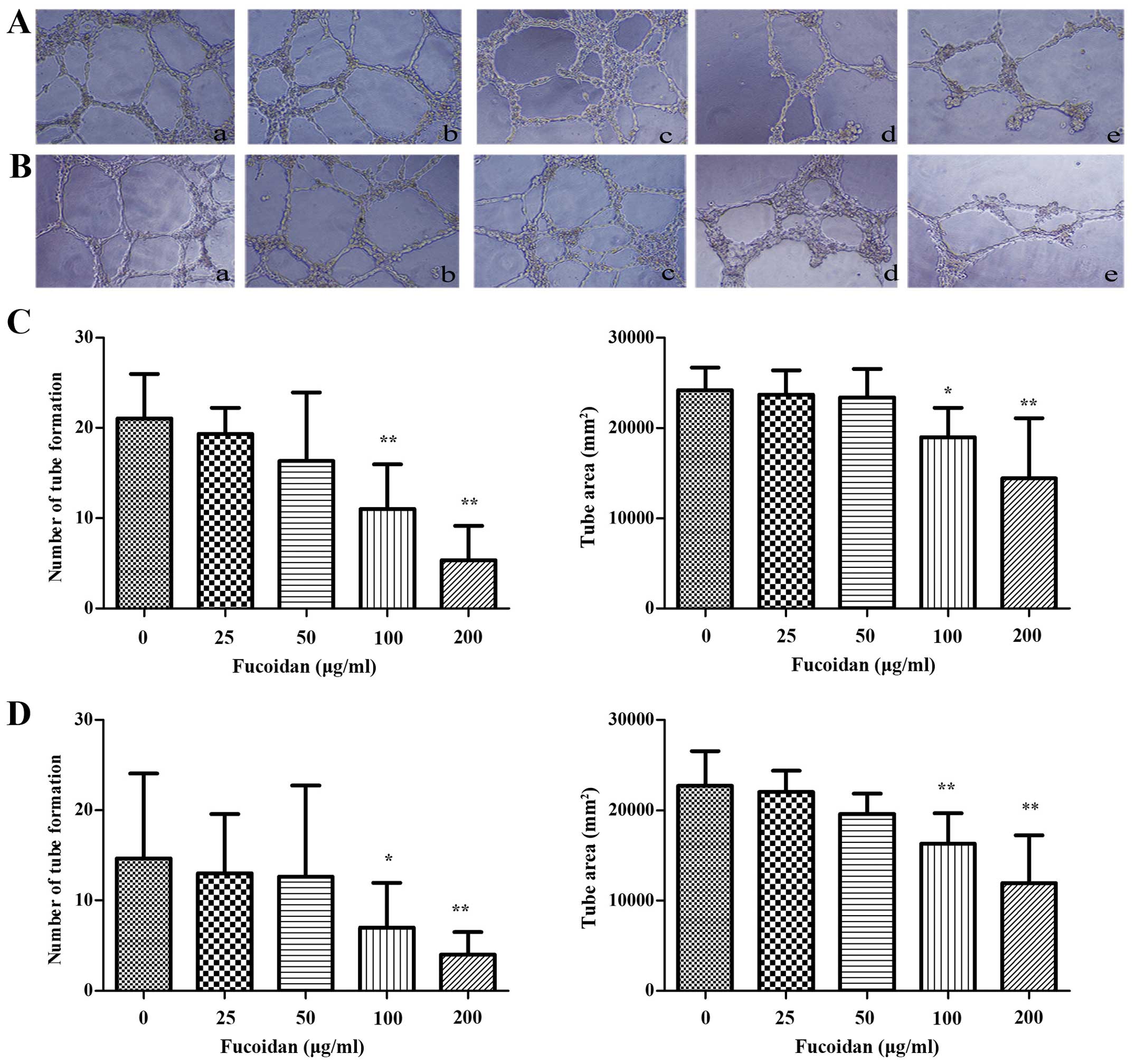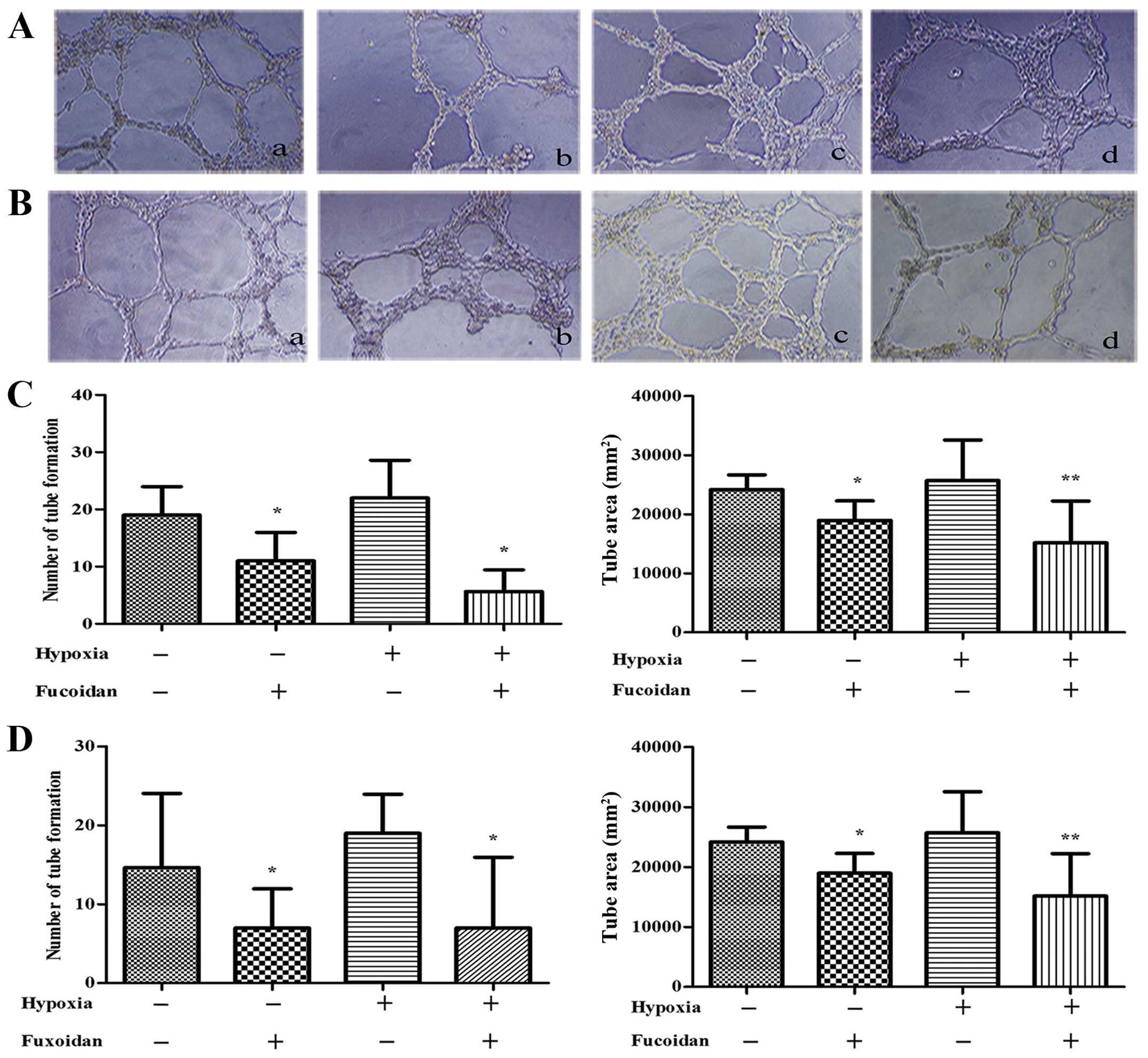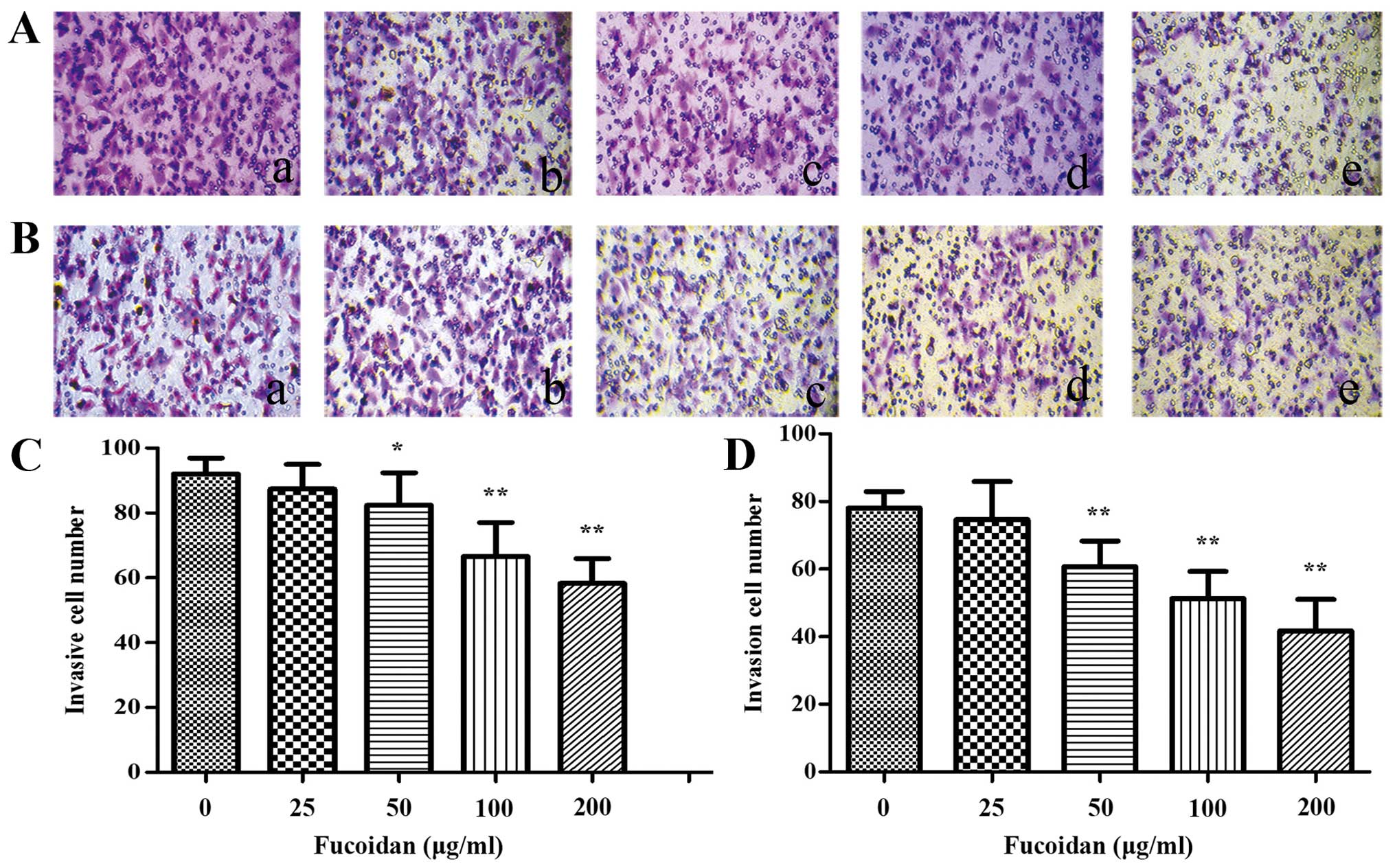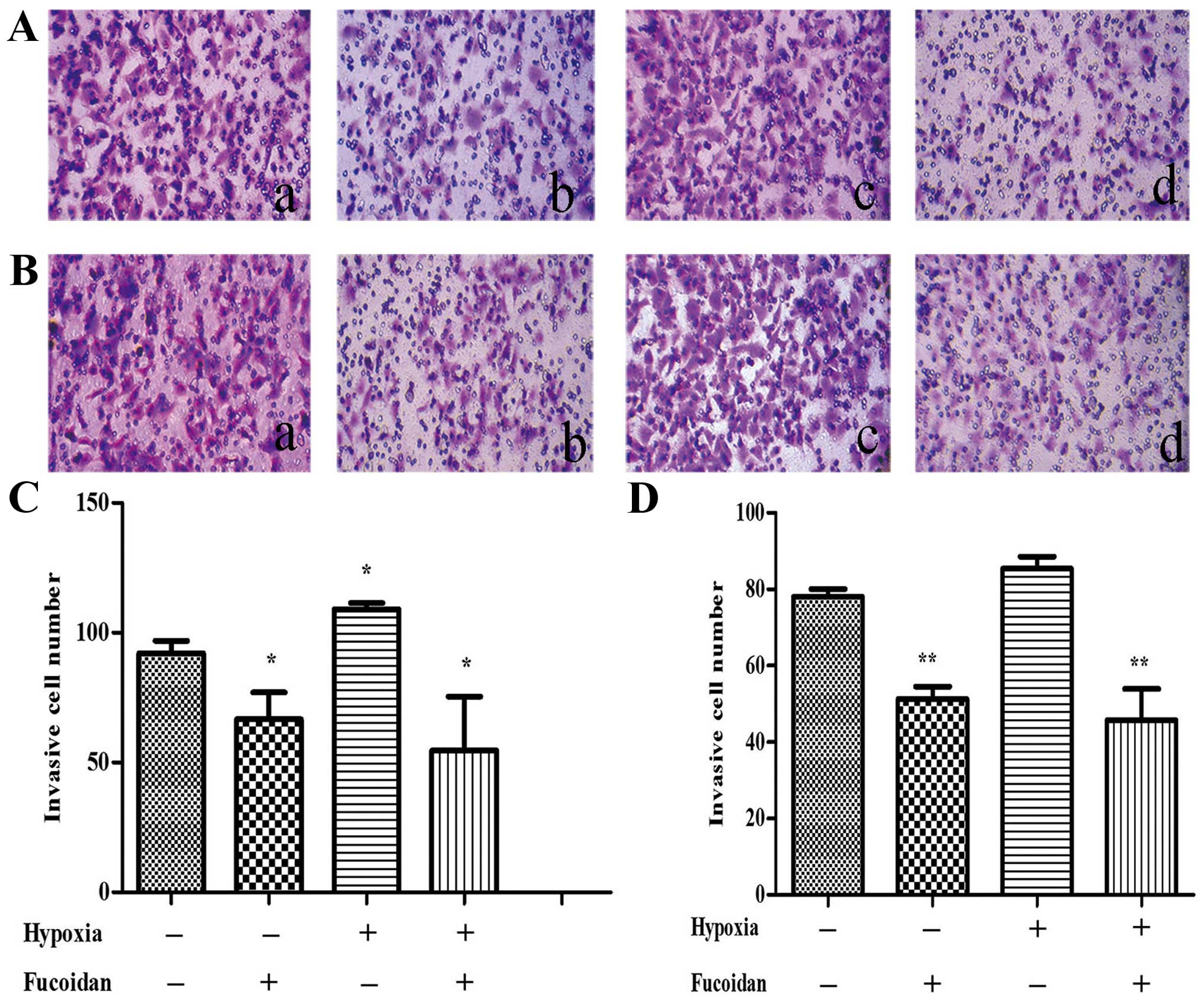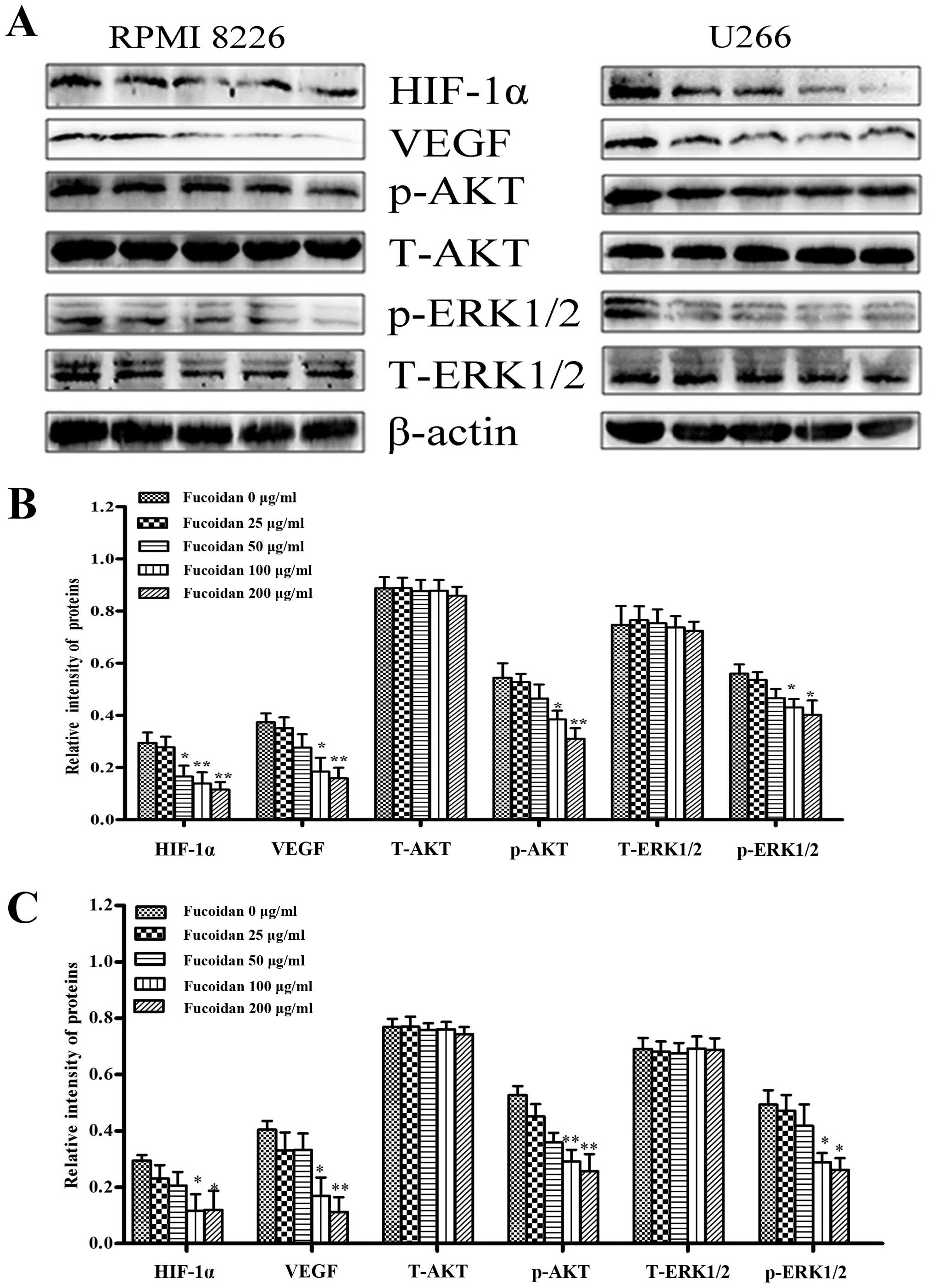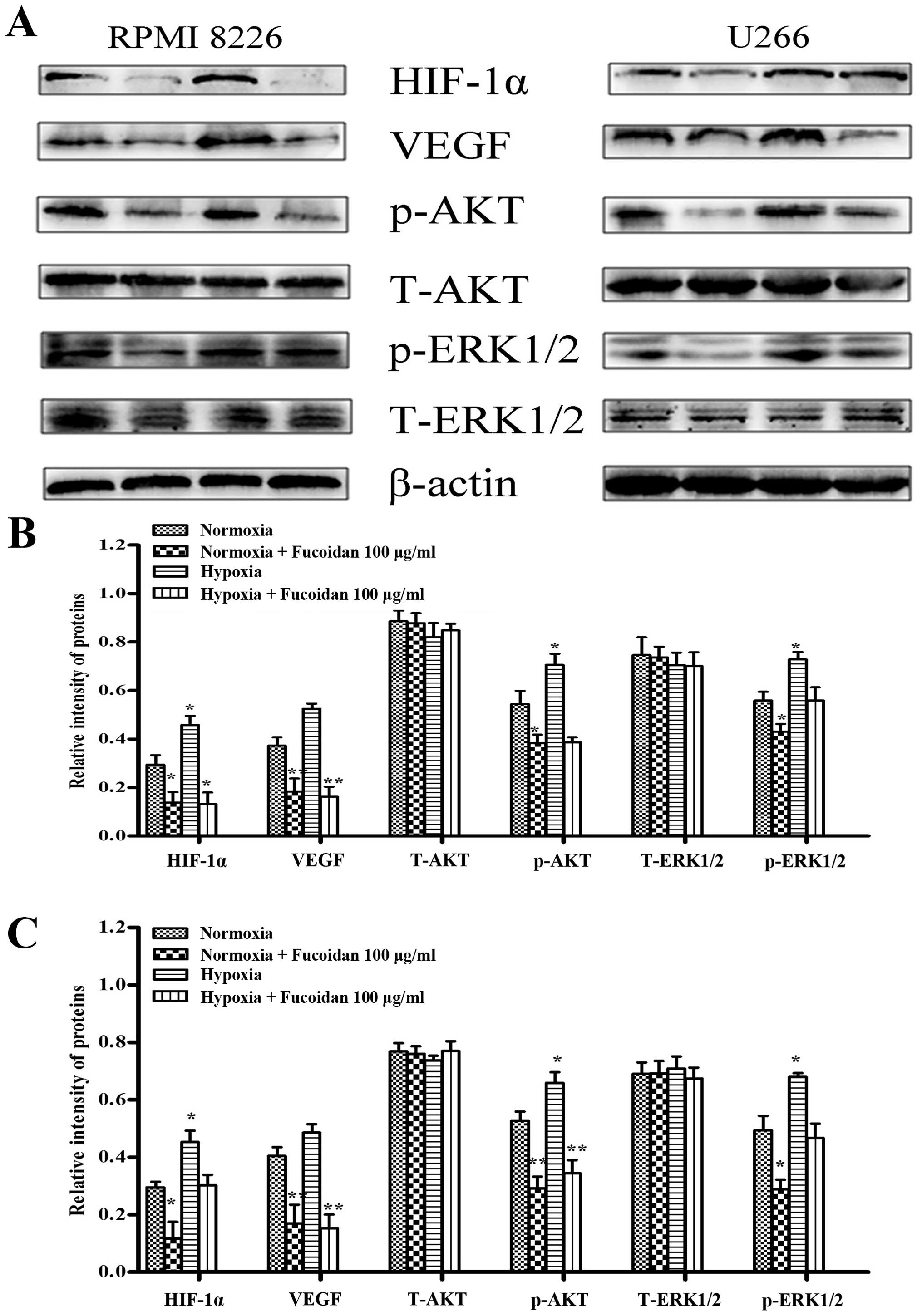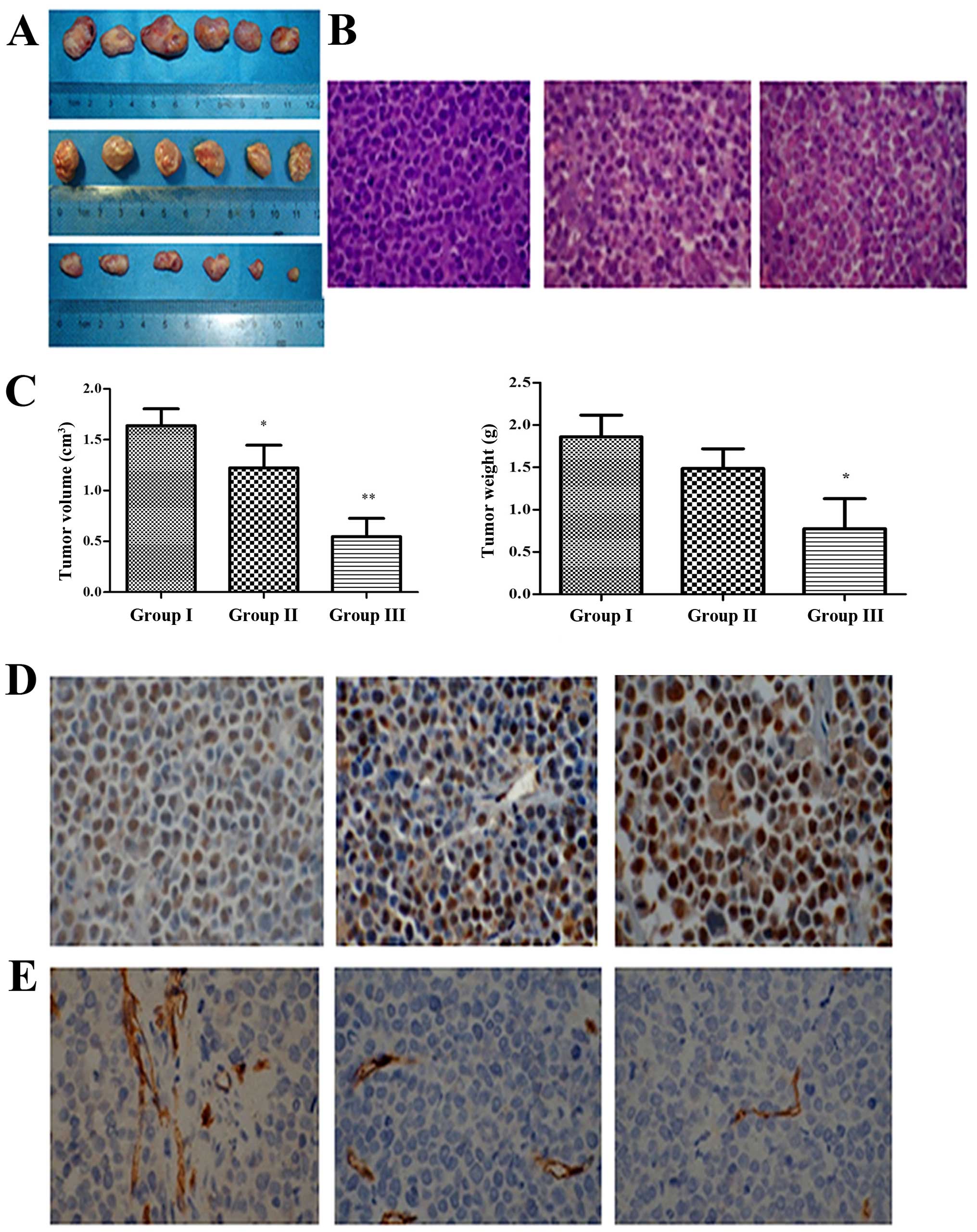|
1
|
Siegel R, Naishadham D and Jemal A: Cancer
statistics, 2013. CA Cancer J Clin. 63:11–30. 2013. View Article : Google Scholar : PubMed/NCBI
|
|
2
|
Röllig C, Knop S and Bornhäuser M:
Multiple myeloma. Lancet. 385:2197–2208. 2015. View Article : Google Scholar
|
|
3
|
Ribatti D, Mangialardi G and Vacca A:
Antiangiogenic therapeutic approaches in multiple myeloma. Curr
Cancer Drug Targets. 12:768–775. 2012. View Article : Google Scholar : PubMed/NCBI
|
|
4
|
Gacche RN and Meshram RJ: Targeting tumor
micro-environment for design and development of novel
anti-angiogenic agents arresting tumor growth. Prog Biophys Mol
Biol. 113:333–354. 2013. View Article : Google Scholar : PubMed/NCBI
|
|
5
|
Azab AK, Hu J, Quang P, Azab F,
Pitsillides C, Awwad R, Thompson B, Maiso P, Sun JD, Hart CP, et
al: Hypoxia promotes dissemination of multiple myeloma through
acquisition of epithelial to mesenchymal transition-like features.
Blood. 119:5782–5794. 2012. View Article : Google Scholar : PubMed/NCBI
|
|
6
|
Giatromanolaki A, Bai M, Margaritis D,
Bourantas KL, Koukourakis MI, Sivridis E and Gatter KC: Hypoxia and
activated VEGF/receptor pathway in multiple myeloma. Anticancer
Res. 30:2831–2836. 2010.PubMed/NCBI
|
|
7
|
Medinger M, Fischer N and Tzankov A:
Vascular endothelial growth factor-related pathways in
hemato-lymphoid malignancies. J Oncol. 2010:7297252010. View Article : Google Scholar : PubMed/NCBI
|
|
8
|
Yang XM, Wang YS, Zhang J, Li Y, Xu JF,
Zhu J, Zhao W, Chu DK and Wiedemann P: Role of PI3K/Akt and MEK/ERK
in mediating hypoxia-induced expression of HIF-1alpha and VEGF in
laser-induced rat choroidal neovascularization. Invest Ophthalmol
Vis Sci. 50:1873–1879. 2009. View Article : Google Scholar
|
|
9
|
Han YS, Lee JH and Lee SH: Antitumor
effects of Fucoidan on human colon cancer cells via activation of
Akt signaling. Biomol Ther (Seoul). 23:225–232. 2015. View Article : Google Scholar
|
|
10
|
Delma CR, Somasundaram ST, Srinivasan GP,
Khursheed M, Bashyam MD and Aravindan N: Fucoidan from Turbinaria
conoides: A multifaceted 'deliverable' to combat pancreatic cancer
progression. Int J Biol Macromol. 74:447–457. 2015. View Article : Google Scholar
|
|
11
|
Yoshimoto M, Higaki K, Nanba E and
Ikeguchi M: Anti-proliferation activity of Fucoidan in MKN45
gastric cancer cells and downregulation of phosphorylated ASK1, a
cell cycle-regulated kinase. Yonago Acta Med. 58:1–7.
2015.PubMed/NCBI
|
|
12
|
Zhu C, Cao R, Zhang SX, Man YN and Wu XZ:
Fucoidan inhibits the growth of hepatocellular carcinoma
independent of angiogenesis. Evid Based Complement Alternat Med.
2013:6925492013. View Article : Google Scholar : PubMed/NCBI
|
|
13
|
Xue M, Ge Y, Zhang J, Wang Q, Hou L, Liu
Y, Sun L and Li Q: Anticancer properties and mechanisms of fucoidan
on mouse breast cancer in vitro and in vivo. PLoS One.
7:e434832012. View Article : Google Scholar : PubMed/NCBI
|
|
14
|
Lv J, Xiao Q, Wang L, Liu X, Wang X, Yang
Z, Zhang H and Dong P: Fucoidan prevents multiple myeloma cell
escape from chemotherapy-induced drug cytotoxicity. Fitoterapia.
84:257–263. 2013. View Article : Google Scholar
|
|
15
|
Yang YC, Chen PN, Wang SY, Liao CY, Lin
YY, Sun SR, Chiu CL, Hsieh YS, Shieh JC and Chang JT: The
differential roles of Slit2-exon 15 splicing variants in
angiogenesis and HUVEC permeability. Angiogenesis. 18:301–312.
2015. View Article : Google Scholar : PubMed/NCBI
|
|
16
|
Podar K, Raab MS, Zhang J, McMillin D,
Breitkreutz I, Tai YT, Lin BK, Munshi N, Hideshima T, Chauhan D, et
al: Targeting PKC in multiple myeloma: In vitro and in vivo effects
of the novel, orally available small-molecule inhibitor enzastaurin
(LY317615.HCl). Blood. 109:1669–1677. 2007. View Article : Google Scholar
|
|
17
|
Kwak JY: Fucoidan as a marine anticancer
agent in preclinical development. Mar Drugs. 12:851–870. 2014.
View Article : Google Scholar : PubMed/NCBI
|
|
18
|
Chen H, Shi L, Yang X, Li S, Guo X and Pan
L: Artesunate inhibiting angiogenesis induced by human myeloma
RPMI8226 cells. Int J Hematol. 92:587–597. 2010. View Article : Google Scholar : PubMed/NCBI
|
|
19
|
Masiero M, Simões FC, Han HD, Snell C,
Peterkin T, Bridges E, Mangala LS, Wu SY, Pradeep S, Li D, et al: A
core human primary tumor angiogenesis signature identifies the
endothelial orphan receptor ELTD1 as a key regulator of
angiogenesis. Cancer Cell. 24:229–241. 2013. View Article : Google Scholar : PubMed/NCBI
|
|
20
|
Minoia C, Quero C, Asselti M, Galise I,
Marzano AL, Iacobazzi A, Rana A, Merchionne F, Serratì S, De Tullio
G, et al: Changes in angiogenesis and hypoxia-inducible factor-1α
protein expression in relapsed/refractory indolent non-Hodgkin
lymphomas. Br J Haematol. 163:640–645. 2013. View Article : Google Scholar : PubMed/NCBI
|
|
21
|
Drolle H, Wagner M, Vasold J, Kütt A,
Deniffel C, Sotlar K, Sironi S, Herold T, Rieger C and Fiegl M:
Hypoxia regulates proliferation of acute myeloid leukemia and
sensitivity against chemotherapy. Leuk Res. 39:779–785. 2015.
View Article : Google Scholar : PubMed/NCBI
|
|
22
|
Huelsemann MF, Patz M, Beckmann L,
Brinkmann K, Otto T, Fandrey J, Becker HJ, Theurich S, von
Bergwelt-Baildon M, Pallasch CP, et al: Hypoxia-induced p38 MAPK
activation reduces Mcl-1 expression and facilitates sensitivity
towards BH3 mimetics in chronic lymphocytic leukemia. Leukemia.
29:981–984. 2015. View Article : Google Scholar
|
|
23
|
Muz B, de la Puente P, Azab F, Luderer M
and Azab AK: Hypoxia promotes stem cell-like phenotype in multiple
myeloma cells. Blood Cancer J. 4:e2622014. View Article : Google Scholar : PubMed/NCBI
|
|
24
|
Hashimoto T and Shibasaki F:
Hypoxia-inducible factor as an angiogenic master switch. Front
Pediatr. 3:332015. View Article : Google Scholar : PubMed/NCBI
|
|
25
|
Storti P, Bolzoni M, Donofrio G, Airoldi
I, Guasco D, Toscani D, Martella E, Lazzaretti M, Mancini C,
Agnelli L, et al: Hypoxia-inducible factor (HIF)-1α suppression in
myeloma cells blocks tumoral growth in vivo inhibiting angiogenesis
and bone destruction. Leukemia. 27:1697–1706. 2013. View Article : Google Scholar : PubMed/NCBI
|
|
26
|
Fan GC: Hypoxic exosomes promote
angiogenesis. Blood. 124:3669–3670. 2014. View Article : Google Scholar : PubMed/NCBI
|
|
27
|
Chen TL, Zhu GL, Wang JA, Wang Y, He XL
and Jiang J: Apoptosis of bone marrow mesenchymal stem cells caused
by hypoxia/reoxygenation via multiple pathways. Int J Clin Exp Med.
7:4686–4697. 2014.
|
|
28
|
Giuliani N, Lunghi P, Morandi F, Colla S,
Bonomini S, Hojden M, Rizzoli V and Bonati A: Downmodulation of ERK
protein kinase activity inhibits VEGF secretion by human myeloma
cells and myeloma-induced angiogenesis. Leukemia. 18:628–635. 2004.
View Article : Google Scholar : PubMed/NCBI
|
|
29
|
Menu E, Kooijman R, Van Valckenborgh E,
Asosingh K, Bakkus M, Van Camp B and Vanderkerken K: Specific roles
for the PI3K and the MEK-ERK pathway in IGF-1-stimulated
chemotaxis, VEGF secretion and proliferation of multiple myeloma
cells: Study in the 5T33MM model. Br J Cancer. 90:1076–1083. 2004.
View Article : Google Scholar : PubMed/NCBI
|















